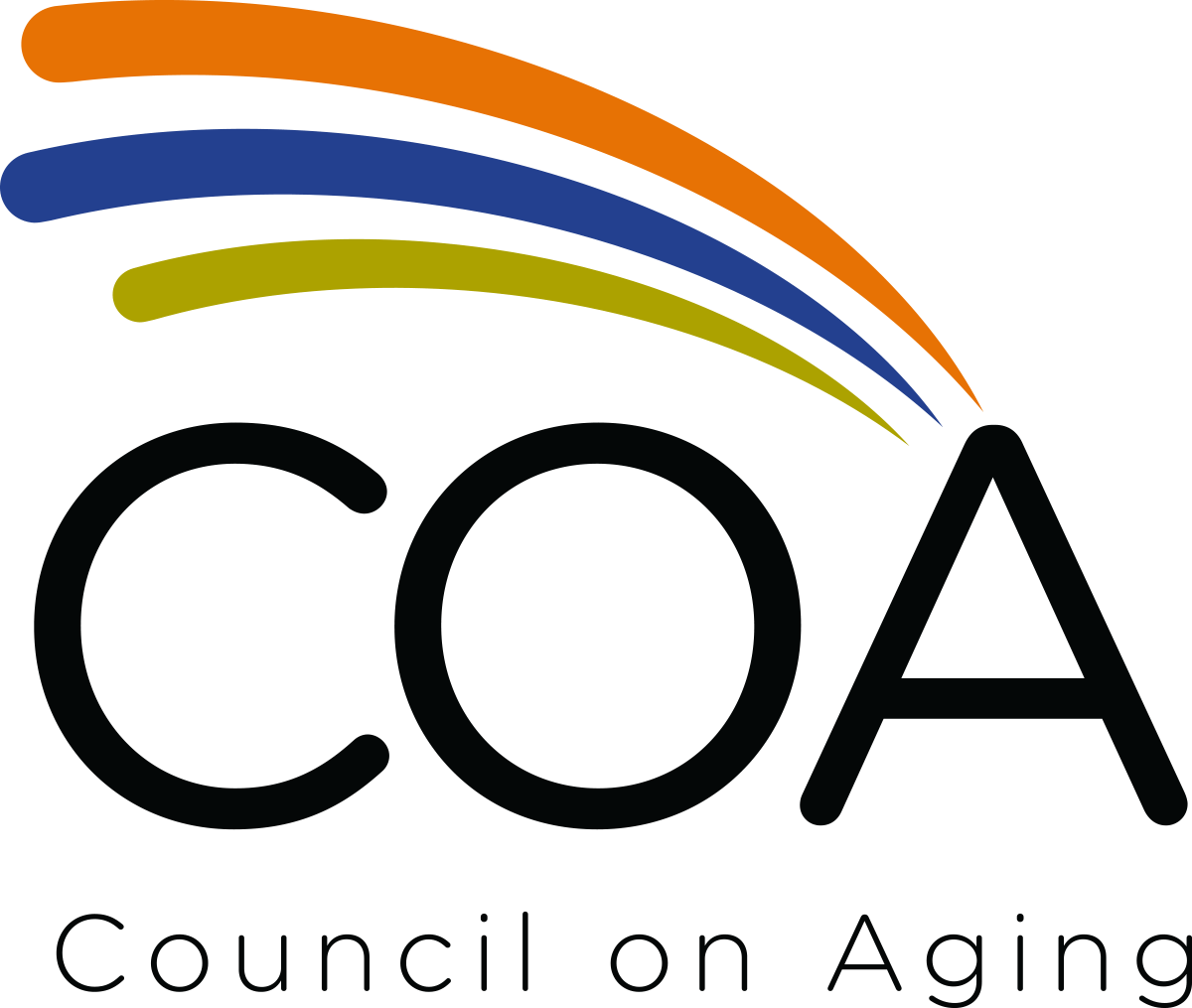Butler County Elderly Services Program 2021 Annual Report
Below are the full success and client stories from the Butler County Elderly Services Program (ESP) 2022 Annual Report. These stories illustrate the impact ESP has on older adults and caregivers in Butler County.
Click here to view the program’s 2022 annual report. To request a paper copy, email us.
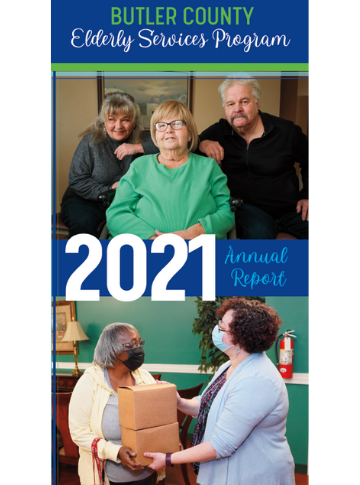
Butler County woman recovers from loss of leg with support of ESP
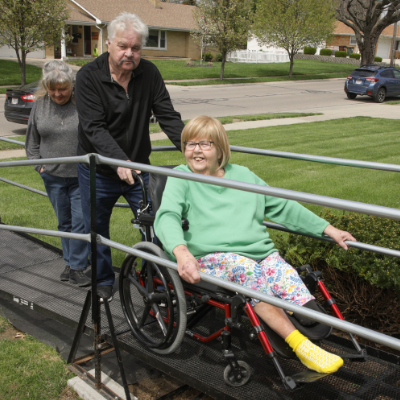
As Mona lay in the hospital confused and barely aware of her surroundings, her family rallied around her. Decisions had to be made quickly.
For years, Mona had been beset by one health problem after another. That, plus the isolation brought by the Covid pandemic, had flattened her once bubbly personality. Now her life was in peril.
The problem was her left leg. She had had three surgeries over the years in an effort to correct inadequate circulation. She was often in pain, but in February of this year, it grew worse. Infection had set in.
“She called me and I could tell something wasn’t right,” said Mona’s brother, Ralph. “She was slurring her words. When I went over, sure enough, she was way out of it, and her toes were totally black. I knew right away what it was.”
Gangrene had settled in her foot and was spreading quickly up her leg. Five days after being admitted to the hospital, surgeons removed her left leg a little below the knee.
Once she was in rehabilitation and over the shock, Mona, 76, began to rebound. Meanwhile, her sister-in-law, Terri, moved into high gear to help Mona return to her home in Hamilton.
Retired from a long career at the Butler County Department of Developmental Disabilities, Terri knew from experience with her clients there what services might be available for Mona, including from the Elderly Services Program (ESP).
She’d even received help from the program herself after hip surgery and for her husband, Ralph, when he fell and broke his shoulder blade. Through ESP’s Consumer Directed Care option, Terri is also employed as an aide for her sister, Martha, who has dementia.
While Mona was in rehab, ESP Program Manager, Katie Furniss, arranged for a ramp to be installed at Mona’s front door, ordered medical equipment, emergency response service and home-delivered meals. Friends knocked down a retaining wall and moved a sink so the ramp and bathroom alterations could be installed.
By the time Mona returned home in mid-April, everything was ready. In addition, a walk-in shower is in the works and Mona is waiting to be matched with a home health aide for homemaking help.
That first night home, family gathered with Mona for a pizza party.
“I chased them out afterward,” Mona said. “I try to do as much as I can for myself. People have their own lives.”
“Mona has always been a can-do kind of gal, upbeat and independent,” Terri said. “I knew she had a lot of living left to do. We knew that she would want to be home. That would be her number one goal. That’s what everyone wants and it’s much more cost-effective than a facility. It’s all about adapting.”
Retired after 41 years at Citi Financial Bank, Mona has enjoyed travelling and playing dominoes with a tight group of friends she has known since school days.
“I don’t know why, but since this happened, I feel like years have been taken off me,” Mona said. “I had been in a slump from all the health problems. Maybe I’ve been revitalized. I feel like anyone would – that it’s good to be in your own home.”
New financial management services provider makes it easier for ESP clients to hire their own caregiver
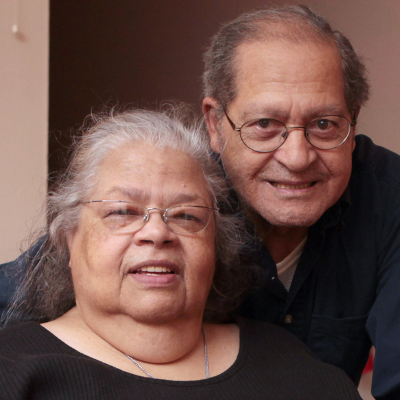
As ESP’s administrator, COA contracts with organizations to deliver services to clients. Contracts are awarded through a competitive bidding process via requests for proposals (RFPs). The goal of the RFP process is to identify and contract with service providers who can offer the highest quality services at the lowest possible cost in order to serve as many older adults as possible with the available tax dollars.
In September, COA issued an RFP for Financial Management Services (FMS) in the Elderly Services Program. The FMS provider supports ESP clients who utilize the program’s consumer-directed care option to recruit and hire their own aides. In this case the ESP client or designated family member is the “employer” and the aide they hire is their “employee.” The FMS provider, on the client’s behalf, manages all the financial and payroll related responsibilities in addition to criminal background checks that go along with being an “employer.”
COA received six proposals in response to the RFP. After all bids were scored, Palco, Inc. was selected as the new FMS provider. The new contract took effect in January 2022 and the process of transitioning current consumer-directed care clients is now underway.
“The new contract with Palco could not have come at a better time,” said Ken Wilson, COA’s vice president of program operations. “There is a severe shortage of home health aides which is impacting ESP’s ability to match clients with home health aides through traditional avenues such as home care agencies. The FMS provider is a key partner in helping us expand the consumer-directed care option of ESP, enabling older adults to work outside of those traditional sources to hire their own aides or caregivers.”
Wilson added that Palco has a history of working with older adults who use programs like ESP to hire their own aides. He said with the transition to Palco, clients who hire their own caregiver can expect a faster enrollment process with expert customer support. “Ultimately, this means we’ll be able to expand the consumer-directed care service to more older adults,” Wilson said.
Council on Aging helps older adults get COVID-19 vaccinations
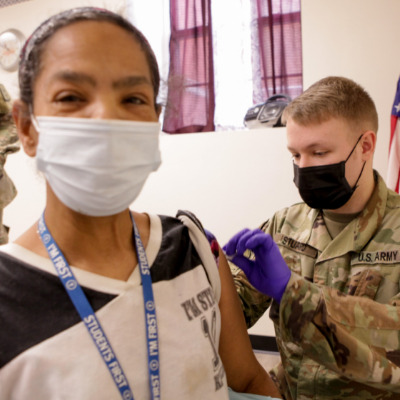
2023 Update: Due to the end of the COVID-19 pandemic, this program is no longer available. Vaccines may be available at private doctor offices, pharmacies, workplaces, community health clinics, health departments or other community locations, such as schools and religious centers. If your primary healthcare provider does not stock all the vaccines recommended for you, ask for a referral. You may also find locations providing the flu and COVID-19 vaccines in your community at www.vaccines.gov.
Since February 2021, Council on Aging (COA) has played a key role in helping more than 3,000 area older get vaccinated against COVID-19, while helping countless others connect to information about the available vaccines.
When Ohio rolled out its statewide COVID-19 vaccination plan in February 2021, older adults were among the first eligible groups to receive a vaccination. However, older adults had difficulty getting vaccinated for two primary reasons: 1) there was not enough vaccine to meet the demand; and 2) most vaccine registration systems required use of a computer or smart phone to make an appointment – a barrier for many older adults. There was also confusion about where older adults could go for assistance in navigating a fragmented vaccine system.
COA helped older adults overcome these barriers by:
- Helping older adults find vaccine providers in their community. COA staff monitored local vaccine availability and helped older adults schedule appointments or join applicable waiting lists.
- Providing no-cost, roundtrip transportation to vaccination appointments for eligible older adults.
- Assisting the Ohio National Guard with vaccination clinics at low-income senior apartment buildings in the region, including coordinating busing from nearby senior communities to maximize the number of people vaccinated at each clinic. Governor Mike DeWine and First Lady Fran DeWine attended one of these clinics and praised Area Agencies on Aging for their work in helping older adults through the pandemic.
“This is the first time COA has worked with the National Guard to vaccinate older adults in this way,” said Ken Wilson, COA’s vice president of program operations and a lead coordinator for the vaccination clinics. “There was a lot of coordination and planning that went into these clinics. It was great to see everyone working together with one goal in mind: protecting vulnerable older adults from COVID-19.”
Residents who came for vaccine appointments showed a range of emotions. Some were apprehensive about getting a new vaccine, but recognized it was their best option for getting their lives back to normal.
“I never get the flu shot,” a resident at an area senior apartment building reported, “but I thought this was important.”
In March 2021, COA began working with local health departments to vaccinate homebound older adults. For many older individuals, leaving their home to get vaccinated could result in serious physical hardship or present a danger to their health. As a result, COA advocated at the state and local level for a process to vaccinate homebound older adults.
“We’d been helping older adults get vaccinated since Ohio’s vaccination plan went into effect,” said Ken Wilson, COA’s vice president of program operations. “From the beginning, we worked to find a way to vaccinate older adults who could not leave their homes. Because COA provides in-home care services to homebound older adults in southwestern Ohio, we were in a good position to identify who in the community needed this service.”
COA worked with local health departments to develop a plan to vaccinate homebound older adults. Using the Centers for Disease Control and Prevention’s (CDC) guidelines for vaccinating homebound individuals and a locally-developed screening tool, COA built a list of individuals who qualify for in-home vaccination in southwestern Ohio. The list included COA clients, as well as individuals from the community not enrolled in a COA program. In all 170 Butler County older adults were referred to local health departments for in-home vaccinations.
On a weekly basis, COA provided local health departments with a list of homebound individuals in their jurisdiction. Health departments then contacted these individuals to schedule their appointment. This work continues as older adults continue to get vaccinated against COVID-19.
“Some people think because they’re homebound, they’re not high-risk, but it’s actually quite the opposite,” Wilson said. “Most homebound individuals have two or more health conditions which put them at risk for severe complications, hospitalization or even death from COVID-19. And, these individuals have people who are coming and going from their home – caregivers, home health care and others – which can increase their risk of exposure.”
COA’s efforts to help older adults get vaccinated against COVID-19 continue. A major focus at the time of this writing is booster shots. Booster shots are important because the vaccine’s effectiveness at preventing serious illness lessens over time – especially in people age 65 and older.
Links to more reading:
- COA, National Guard partner on vaccination clinics in low income senior buildings
- COA helps older adults access COVID-19 vaccine
- Town Halls to prepare buildings for vaccination clinics
- Homebound vaccination program
Butler County ESP client enjoys small pleasures of being in her own home
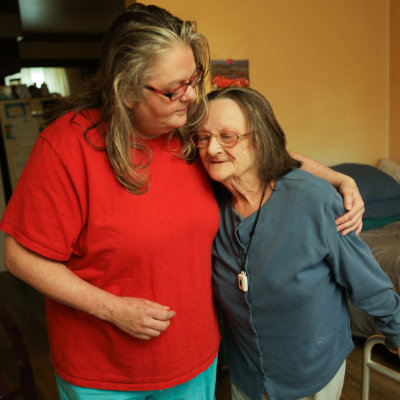
Vereline is a tiny figure in her big chair. Never a large person, the hardships of health problems, medical bills and misfortunes have whittled her down.
But when she starts to talk, her voice is strong and sure. She wants people to know how grateful she is for the Butler County Elderly Services Program (ESP) and, in particular, her ESP care manager, Monica Lynch.
“She is an exceptional person,” Vereline said. “Whatever I needed, she took care of. She has taken so much stress off me; I just can’t even say all the words of what it’s meant.”
Vereline, 75, has lived in a small apartment in Middletown for the past 21 years. Her daughter, Melissa, lives with her and is her caregiver. Or, as Vereline calls her, “my Rock of Gibralter.”
Vereline has endured much tragedy: the early deaths of her husband and father, the death of her first child shortly after birth, and, in 1985, the death of her 21-year-old daughter by accidental carbon monoxide poisoning.
It all led to a nervous breakdown, Vereline said. But there was one hardship that ended with “a miracle.” At the age of six, Melissa contracted pneumococcal meningitis. Doctors suggested a drug that was experimental at the time. “I was ready to make funeral arrangements, but I prayed about it,” Vereline said, “and the Lord told me to go ahead.” Melissa recovered, although she still has some disabilities. “It gives me cold chills thinking what the Lord done for her,” Vereline said.
Vereline’s own health problems go back nearly two decades. Her lungs were damaged by ammonia in an accident when she was working as a hospital janitor and she also suffered from COPD. In 2009, she had a heart attack and in August, 2021, a stroke.
She enrolled in Butler County ESP at that time and received an emergency response system, grab bars in her bathroom and some medical equipment to help her move around safely at home.
“I am just so grateful to be able to sleep in my own bed, sit in my own chair, and use my own shower at my own pace and in my own time,” Vereline said.
Her care manager also helped set up a plan with the hospital and medical providers so Vereline could gradually pay off her bills.
“I don’t have a 401K or retirement plan,” she said. “I’m doing the best I can on a fixed income. So, I can’t tell you what it means to have this set up so I can pay my bills and have that stress off me.”
Last January, Vereline was using her walker when the brake failed. “It spun me around and I went down,” she said. “I fractured my hip and pelvis – shattered like a lightbulb.”
Vereline’s ESP care manager arranged for her to be transported to the hospital where it was determined that time and physical therapy would do the healing.
That, plus ESP, and the loving care of Melissa are helping Vereline recover. Family counseling has helped the two of them weather their hardships and work together with openness and understanding.
“We’ve been through a lot,” Vereline said. “But we’re fighters. We’re there for each other. We keep a positive attitude. As long as you have love and respect in your like, it’s priceless.”
Caregiver Support Program now offers overnight respite
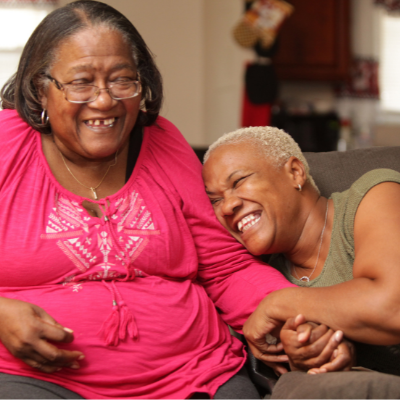
Council on Aging’s Caregiver Support Program offers one-on-one support, advice and resources to family and other informal caregivers to help them manage their caregiving responsibilities. And now, the program is also able to offer overnight respite care so caregivers can take a much-needed break.
If appropriate, this service will provide up to seven days (overnight) of care in an area care facility. All of the care recipient’s needs will be met while at the care facility. Caregivers are then free to use this time for respite – rest, catch up on housework or paperwork, visit out-of-town friends/family, take a vacation, etc.
Since overnight respite care was first offered in July, the service has supported two family caregivers in Butler County by providing 13 days of overnight respite.
“Caregivers give so much of themselves and often neglect their own needs when caring for a loved-one,” said Anna Goubeaux, RN, COA’s caregiver support nurse. “Caregiver burnout is one of the top reasons older adults and people with disabilities end up in nursing homes. Supporting caregivers and giving them much-needed time off benefits everyone.”
COA’s Caregiver Support Program is available at no cost to caregivers or care recipients aged 60 and older. The caregiver must live in Butler, Clermont, Clinton, Hamilton or Warren counties. There is no age requirement for family caregivers who provide care for individuals with Alzheimer’s disease or related disorders with neurological and organic brain dysfunction.
The overnight respite care is available to eligible caregivers of individuals who have a cognitive impairment (Alzheimer’s disease or dementia, for example).
Learn more about Caregiver Support.
Comfort Meal program grows, wins awards during year two of pandemic
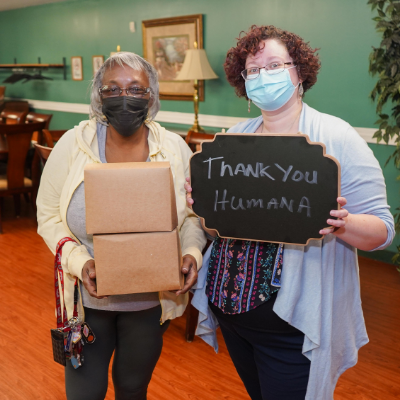
Council on Aging’s Comfort Meal Program, which began in April 2020 at the start of the pandemic, continues to have an impact on area older adults. Since its start, the program has provided nearly 135,000 meals through up to 10 restaurant partners, including nearly 6,000 meals in Butler County.
When the COVID-19 pandemic began, COA heard from older adults who were afraid to go out for groceries and other necessities. They felt isolated, alone and forgotten. Others found themselves without their regular support network. Many who contacted COA had never before needed help.
Food security immediately became a focus for COA, with social isolation following close behind. Council on Aging began searching for ways to bring comfort to older adults – particularly low-income older adults – who were stuck in the monotony created by the pandemic.
“We’ve learned from past emergency situations that food quickly becomes an urgent need for older adults,” said Council on Aging CEO, Suzanne Burke. “We partnered with area restaurants to not only help meet the nutritional needs of older adults during the pandemic, but to also help them feel connected to the outside world. Things may be returning to normal, but many older adults are still weary of being in crowds, and sadly, some have fallen out of touch with their social and support networks. We plan to continue this program for the foreseeable future, so older adults have time to adjust to life changes caused by the pandemic.”
At its peak, COA’s comfort meal program included 10 area restaurants, including Neal’s Famous BBQ in Hamilton. Restaurants and meal providers currently involved in the program include LaRosa’s, Taste of Belgium, Frisch’s and Chef Anthony Jordan.
Additionally, a grant from Humana’s Bold Goal initiative has been funding monthly meals at Talaford Manor in Oxford since January 2021. Bold Goal is a population health initiative focused on improving the health of the communities served by Humana. Humana has renewed its Bold Goal grant with COA for 2022.
COA’s comfort meal program is a community partnership. The meals are paid for by COA – via grants, donations and federal funds designated to expand meal service to older adults during the pandemic. COA service providers, including Meals on Wheels of Southwestern Ohio & Northern Kentucky (MOW), collect the meals from participating restaurants and deliver them to low-income senior apartment buildings across COA’s service area.
COA and the program’s restaurant partners have received countless phone calls, letters and cards from comfort meal recipients, all with a similar theme: Thank you for remembering us.
In 2020 and 2021, the comfort meal program received several local, state and national awards, including:
- Ohio Association of Area Agencies on Aging: Outstanding AAA Partnership of the Year (October 2020)
- Clinton County Community Champions Award: Non-Profit Category Winner for Comfort Meal Program (November 2020)
- Alliance of Information and Referral Systems (AIRS): Innovation Award, Disaster Preparedness Category, Comfort Meal Program (May 2021)
Senior farmers’ market program nearly doubles participants in 2021
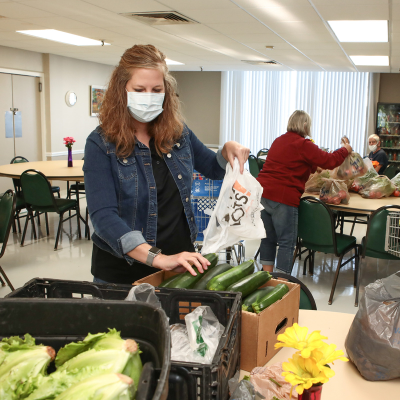
In its second year operating in southwestern Ohio, the United States Department of Agriculture Senior Farmers’ Market Nutrition Program nearly doubled in size, providing 2,213 low-income area older adults with fresh, local produce for no out-of-pocket cost during the 2021 growing season. Nearly 350 Butler County low-income older adults participated in 2021, a 60 percent increase over the program’s first year.
COA’s Nutrition Business Relations Partner, Jennifer Lake, worked with local community members, area farmers and the Ohio Department of Aging to secure a $180,000 grant from Ohio’s General Revenue fund to bring the program to the area.
Cynthia Stever, former chair of the Butler County Elderly Services Program Advisory Council, and Butler County resident and activist, Mike Eck, were instrumental in bringing the program to southwestern Ohio. “The whole theory is that when it comes to local, farm-fresh food, everybody deserves some,” Eck said.
COA honors area home health aides as 2021 heroes
Council on Aging (COA) was pleased to recognize three area home health aides as 2021 Home Health Aide Heroes: Deborah Grant (Clinton County Community Action Agency), Gwen Squire (A Miracle Home Care) and James Roe (Hillebrand Home Health). The honorees were selected from among nearly 100 area home health aides who were nominated in 2020 for COA’s Service in Excellence Award. Nominations were submitted throughout the year by COA staff, clients and family members. The 2021 honorees reflect admirably on a workforce that is critical to meeting the care needs of a growing population – and that certainly deserves more respect.
Home health aides provide critical and often life-saving care for older adults who want to remain in their homes as they age. They provide very personal care – help with bathing, dressing and eating – as well as important everyday tasks like cleaning, cooking and running errands. Home health aides are in a position to get to know their care recipients intimately and can be the first to notice critical changes in physical and behavioral health.
But the stability home health aides provide is in jeopardy. Home health workers’ low wages, thin benefits, unpredictable schedules and other job challenges and stresses mean there is a shortage of qualified home health aides. As the economy has improved in recent years, many have left the industry for higher paying, more stable employment opportunities. Click here to read more.
Council on Aging CEO, Suzanne Burke, presented awards to each honoree at their place of employment. Additionally, the honorees were recognized on April 21, 2021 during Council on Aging’s virtual Forum on Aging conference. Conference attendees work for, with and on behalf of older adults and people with disabilities. They understand the important role home health aides play in helping their clients and patients remain independent at home. COA also presented a video highlighting the honorees and the role this critical workforce plays in helping COA achieve its mission. The video also aired on WCPO, April 22.
Deborah Grant

Ms. Grant was nominated by Clinton County Elderly Services Program (ESP) Care Coordinator, Carla McCauley, and Linda Rice, the sister of an ESP client. The nomination referenced the long-standing and life-saving care Ms. Grant provided to Ms. Rice’s sister, Sue.
The nomination stated that Ms. Rice appreciated the more than 10 years of care Ms. Grant provided for her sister. Ms. Rice said, “Debbie is invaluable for Sue. They have a long-standing, admirable friendship and know each other well. I don’t live with Sue, so I can’t always be there. Debbie is certainly someone to be counted on. So much so, that Debbie saved my sister’s life.”
Ms. Rice shared that during an appointment in 2020, Ms. Grant arrived at her sister’s home for her scheduled appointment but got no answer at the door. Instead of leaving, Ms. Grant entered the open apartment and found Sue in her bedroom – unresponsive and in trouble. Ms. Grant called 911, likely saving Sue’s life.
Ms. Rice said, “I don’t know if Sue would have made it if Debbie hadn’t gone to the apartment when she did. I can’t say enough about my sister’s services! Thank you for everything you do.”
Click here to read more about how Ms. Grant’s care impacted Sue – and Ms. Rice’s – life.
Ms. Grant received a $500 prize from Counci on Aging.
Gwen Squire
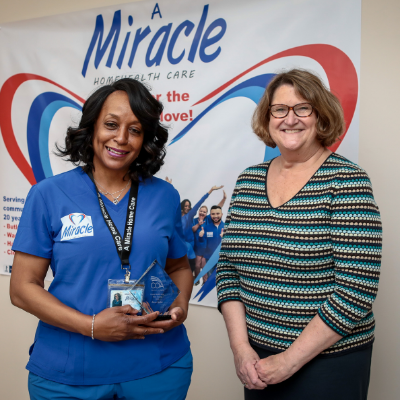
Gwen has been caring for our client for the past year, who has Alzheimer’s Disease. Gwen’s help is essential for our client – and her husband – to remain in their home. Gwen provides respite (time off) for the husband, who serves as our client’s primary caregiver. Gwen provides personal care; cleans the client’s bedroom and bathroom; and provides learning time. The client’s husband described Gwen as: super, kind, loving, caring, patient, dependable, and part of our family. He said, We are able to stay at home because of Gwen’s help.
Ms. Squire was nominated by Council on Aging Care Coordinator, Joan Long. In many cases, the care provided by a home health aide benefits not only the older adult, but also the family members who are also providing care to their loved one.
Here’s what Ms. Long had to say about the care Ms. Squire provided for a couple grappling with the effects of Alzheimer’s Disease:
Ms. Squire received a $250 prize from Council on Aging.
James Roe
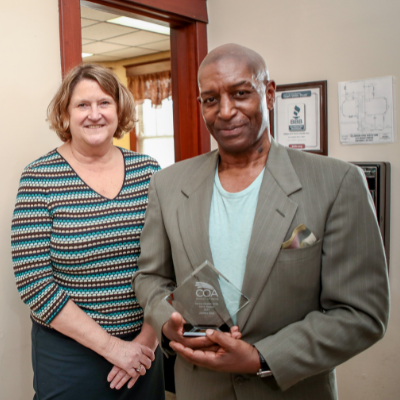
Home health aides are often required to provide complicated and physically demanding care. James Roe is the type of aide who is willing to do whatever it takes to make sure his clients are comfortable and safe. Mr. Roe was nominated by Council on Aging Care Coordinator, Cheryl Porter.
Here’s what Ms. Porter had to say about the care Mr. Roe provided for a particular COA client:
On behalf of Council on Aging, my client and the client’s family, I wish to recognize James Roe from Hillebrand Home Health for exemplary home health care service. James surpassed all expectations in providing skilled and compassionate care, always making sure that the client was clean, comfortable and safe. James was trusted by the client in assisting with difficult transfers in/out of bed. James deftly used the Hoyer lift and other techniques to reduce the client’s pain and discomfort. James’ skills, exceptional care and willingness to work extra shifts shows his extraordinary commitment in caring for others. Thank you for all that you do!
Mr. Roe received a $250 prize from Council on Aging.
